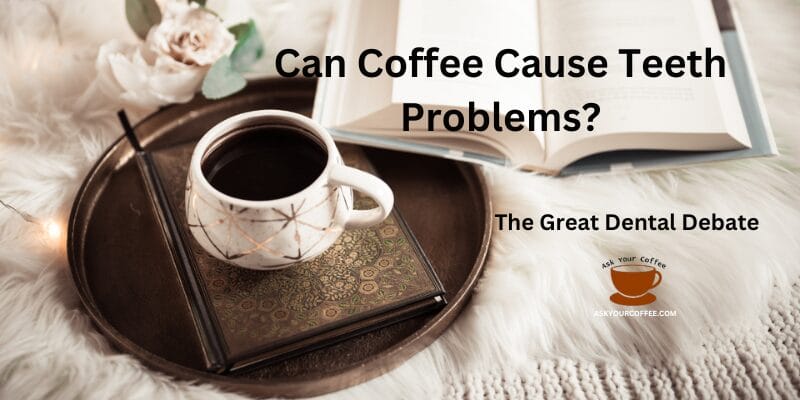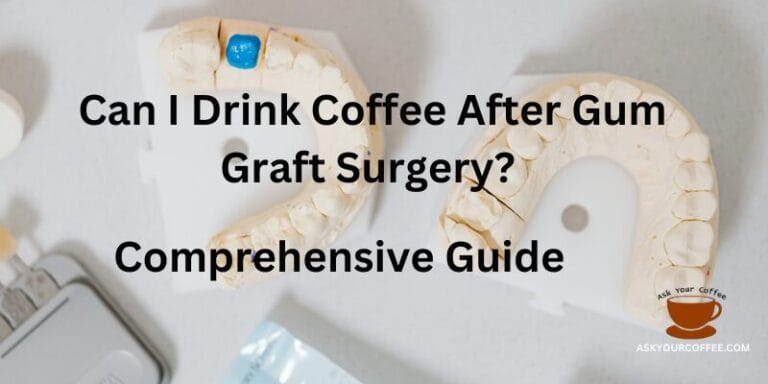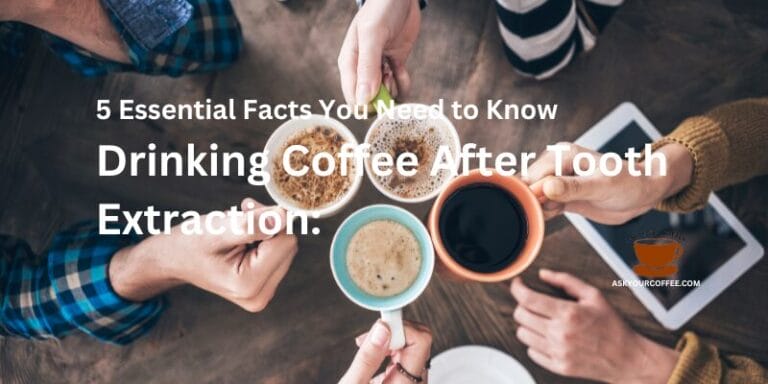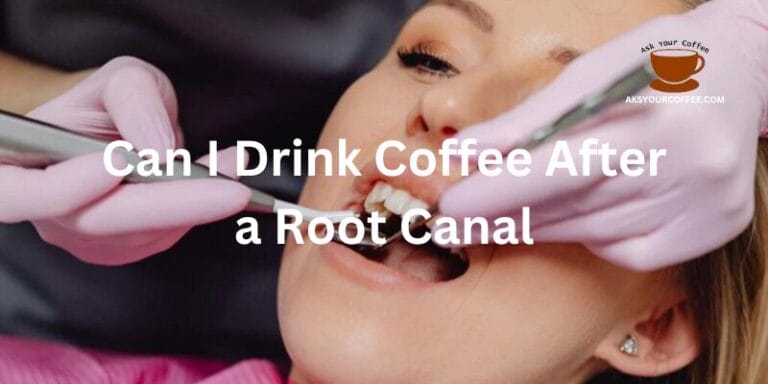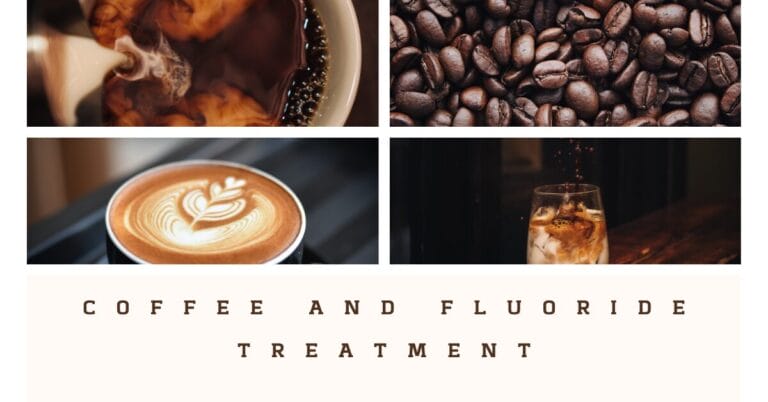Can Coffee Cause Teeth Problems? The Great Dental Debate
Coffee is such a worldwide favorite, But Can Coffee Cause Teeth Problems? We all love that rich taste and the smell that wakes us up. But here’s the thing: have you ever wondered if it’s affecting your teeth? Let’s chat about it and figure out what coffee does to our smiles.
Coffee and teeth have this interesting relationship. We’re going to look at both the good and not-so-good parts. It’s not just about whether it’s good or bad – it’s more like a little journey to understand how our favorite drink plays with our teeth.
Think of it as a tiny show in your mouth. We’ll talk about how coffee and teeth interact – like characters in a story. It’s not just facts; it’s like getting to know the actors in the play happening in your mouth every time you take a sip.
Ready to dive into the behind-the-scenes of your coffee and teeth connection? Let’s roll!
Disclaimer: The information provided in this guide is for general educational purposes only and should not be considered professional medical advice. Always consult with a dental professional for personalized guidance.
Key Takeaway.
- Coffee can sometimes be bad for your teeth.
- Dentists argue about whether coffee really causes dental problems.
- Drinking too much coffee might hurt your teeth.
- Remember to brush and floss your teeth, even if you love coffee!
- Knowing how coffee can affect your teeth can help you take better care of them.
Can Coffee Cause Teeth Problems?
Yes, excessive consumption of coffee can contribute to teeth problems. Coffee is acidic, and acidic beverages can erode tooth enamel over time.
Enamel is the layer that covers your teeth; when it erodes, it can lead to discoloration, dental sensitivity, and an increased risk of cavities.
Coffee is also known to leave stains on teeth. The dark pigments in coffee can adhere to the enamel, causing your teeth to become discolored over time.
Regular consumption of coffee without proper oral hygiene practices, such as regular brushing and flossing, can exacerbate these issues.
Interested In: Can I Drink Coffee After Teeth Whitening
Coffee Can Give These Damages to Your Teeth.
After learning about “Can Coffee Cause Teeth Problems”, Now I would like to discuss them in detail.
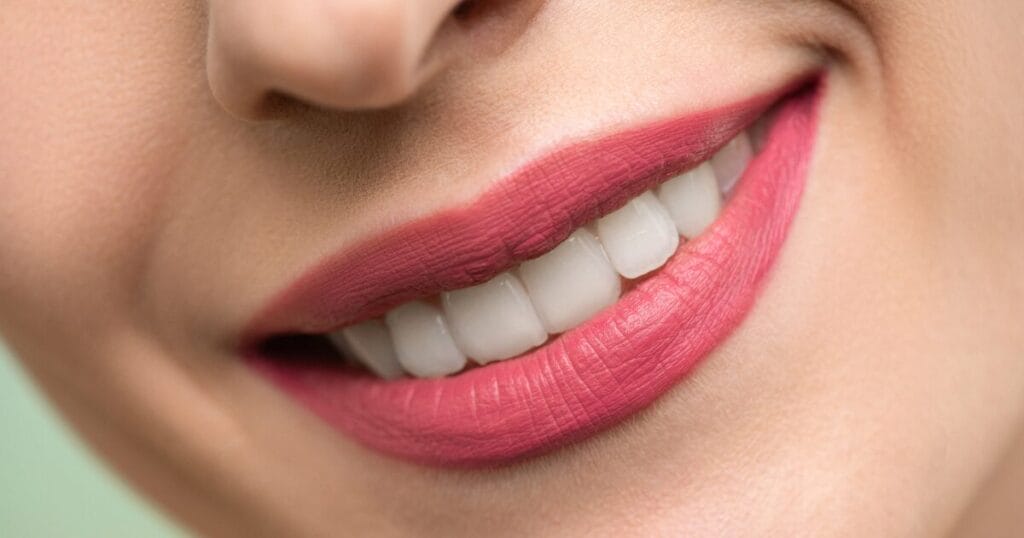
1. Staining and Discoloring:
Coffee’s rich, dark pigments can gradually take a toll on your teeth, leading to staining over time. Imagine it as an unintended masterpiece on your enamel canvas. While the discoloration might not be immediate, consistent coffee consumption can diminish the natural radiance of your smile.
Regular dental cleanings and perhaps the occasional teeth-whitening routine can help combat these stains and keep your teeth shining.
2. Teeth Yellowing:
Beyond simple staining, coffee has the potential to contribute to the yellowing of teeth. The combination of pigments and acids can gradually alter the color of your enamel. Picture it as a subtle transformation, like the slow fading of a bright white to a warm yellow.
To counteract this effect, regular dental care, including professional cleanings, and perhaps exploring teeth-whitening options can help maintain a brighter, more vibrant smile.
3. Enamel Erosion and Cavities:
The acidity present in coffee can be a double-edged sword. While it provides that characteristic zing to your brew, it also has the potential to weaken the protective enamel on your teeth. Think of it as an adversary subtly undermining your enamel fortress.
To counter this, consider sipping water alongside your coffee to help neutralize acidity. Additionally, maintaining a balanced diet with foods that promote enamel health can contribute to protecting your teeth.
4. Bad Breath:
The strong aroma of coffee can linger in your mouth, contributing to unpleasant breath. Compounds in coffee can interact with oral bacteria, leading to an unwanted odor.
Combatting bad breath involves regular oral hygiene practices, including thorough brushing, flossing, and perhaps using a tongue scraper. Hydration also plays a role in keeping your mouth fresh, so ensure you’re drinking enough water throughout the day.
5. Dry Mouth:
Caffeine, a diuretic present in coffee, can contribute to dehydration, resulting in reduced saliva production. A dry mouth creates an environment conducive to bacterial growth and potential oral health issues.
Counteract this by staying well-hydrated throughout the day. Drinking water not only helps mitigate dry mouth but also aids in neutralizing acidity and maintaining overall oral health.
6. Teeth Sensitivity:
Frequent consumption of hot coffee can contribute to temperature sensitivity in teeth, especially if you have existing dental issues. It’s like a wake-up call for your nerves.
Being mindful of the temperature of your coffee and addressing any existing dental concerns with your dentist can help minimize discomfort.
Consider allowing your coffee to cool slightly before sipping to reduce the impact on tooth sensitivity.
How Can You Minimize the Side Effects of Coffee On Your Teeth?
As we have discussed Can Coffee Cause Teeth Problems, Now how to minimize the potential negative effects of coffee on your teeth, you can consider the following:
1. Limit Consumption:
Moderation is key when it comes to enjoying coffee while safeguarding your teeth. Limiting your daily intake can help minimize prolonged exposure to the staining pigments and acidity present in coffee. Consider savoring your favorite brew during specific times rather than constantly sipping throughout the day.
2. Add Some Milk:
Adding milk to your coffee not only enhances its flavor but also helps mitigate the staining potential. The proteins in milk can bind to the pigments in coffee, reducing their ability to adhere to your teeth. This simple addition can be a tasty way to enjoy your coffee while lessening its impact on tooth discoloration.
3. Use a Straw:
Sipping your coffee through a straw can be an effective strategy to bypass direct contact with your teeth. By minimizing contact, you reduce the exposure of your enamel to the staining pigments and acidity. Opt for a reusable straw to make this a sustainable and convenient choice.
4. Teeth Cleaning:
Regular dental cleanings are crucial for maintaining oral health, especially for coffee enthusiasts. Professional cleanings can effectively remove surface stains and plaque that may accumulate over time. Schedule regular appointments with your dentist to keep your teeth in top-notch condition.
5. Rinse with Water:
After enjoying your cup of coffee, rinse your mouth with water. This simple step helps wash away residual pigments and acidity, preventing them from lingering on your teeth. Swishing water around your mouth can be an easy and effective way to minimize the negative effects of coffee on your teeth.
6. Use an Electric Toothbrush:
Consider upgrading your toothbrush to an electric one. Electric toothbrushes are often more efficient at removing plaque and stains compared to manual brushes. The oscillating or rotating bristle movements can provide a thorough cleaning, helping to counteract the potential negative effects of coffee on your teeth.
7. Chew Sugar-Free Gum after Drinking Coffee:
After your coffee fix, opt for sugar-free gum. Chewing stimulates saliva production, neutralizing acidity and washing away coffee pigments. It helps maintain a healthy mouth pH, reducing the risk of enamel erosion and cavities.
Choose gum with xylitol for added bacterial growth inhibition, preventing tooth decay. This quick post-coffee habit not only freshens your breath but also adds a layer of defense to keep your smile healthy.
8. Consider Whitening Products:
If stains accumulate over time, consider incorporating teeth-whitening products into your routine. Whitening toothpaste or over-the-counter whitening strips can help reduce surface stains.
However, it’s essential to consult with your dentist before using any whitening products to ensure they are suitable for your dental health.
It’s important to keep in mind that everyone responds to coffee differently and that its effects on teeth can vary as well. If you are concerned about the possible effects of coffee on your oral health, it is recommended to seek the advice and counsel of a dentist.
The Bottom Line – Can Coffee Cause Teeth Problems
Now I would like to sum up can coffee cause teeth problems, You can enjoy your daily cup of coffee without stressing about your teeth. Just keep it simple: don’t go overboard, maybe add a splash of milk, use a straw if you want, and make sure you’re getting those regular teeth cleanings. After your coffee, swish some water around, maybe try an electric toothbrush, and if you’re into it, whitening products can be cool. Oh, and don’t forget the sugar-free gum.
It’s like a little treat for your teeth. Keep things balanced, take care of your smile, and continue sipping your coffee joyfully. Cheers to happy teeth and happy sipping!
FAQs – Can Coffee Cause Teeth Problems?
If you have other queries than can coffee cause teeth problems or related to this please find below,
Can coffee damage my teeth?
Yes, coffee can potentially stain your teeth over time due to its dark pigments. The acidity in coffee may also weaken the enamel, making teeth more susceptible to issues like cavities.
Should I stop drinking coffee for my teeth?
Not necessarily. Moderation is key. Limit your intake, consider adding milk to mitigate staining, and practice good oral hygiene. Regular dental check-ups can help manage any potential issues.
How do I keep coffee from ruining my teeth?
To minimize the impact of coffee, limit consumption, add milk to reduce staining, use a straw, get regular teeth cleanings, rinse with water after drinking, consider an electric toothbrush, and explore whitening products cautiously.
Is drinking water after coffee bad for teeth?
No, it’s beneficial. Rinsing with water helps wash away residual pigments and acidity, preventing them from lingering on your teeth. It’s a simple and effective way to minimize potential negative effects after enjoying your coffee.

